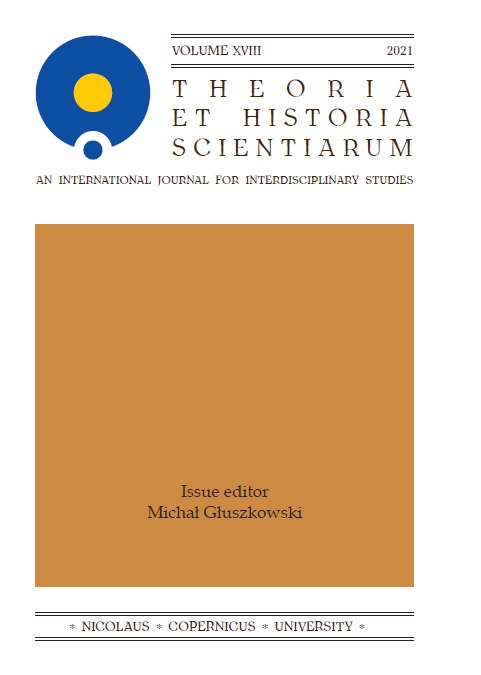Grammatical transformations in translation of political speeches
a case study
DOI:
https://doi.org/10.12775/ths.2021.003Keywords
political speech, linguistic characteristics, transformations, translationAbstract
The paper is devoted to the problem of translation of political speeches, which is extremely relevant today, as political activity plays a special role in society, affects the country’s place in the international arena and its relations with other coun-tries. Politicians have the opportunity to appeal to both the international community and their compatriots, gain recognition, demonstrate their leadership and represent their country in the best possible way via speeches. Translation of political speeches is considered to be one of the most complicated types of translation, which is the area of increased linguistic responsibility. Translation transformations, which are defined as certain structural or semantic changes that are the result of lexical and grammatical differences in languages, are used to achieve translation equivalence (translation adequacy) despite the differences in the formal and semantic systems of two languages. The research is aimed at examining the peculiarities of political speeches and difficulties arising in the process of their rendering into Ukrainian. This paper consists of six main sections. The first is an introduction to the study. The second examines the definition and features of political speeches given by national and foreign scientists. The third section explains the methodology used in the study and the data selection process. In the course of analysis, the existing scientific literature concerning the topic at hand providing valid grounds for the practical part of the work has been analyzed and grammatical translation transformation examples have been selected and examined. The research data was taken from the website of the US Embassy in Ukraine. Thereafter the focus shifts to challenges the students face in translation of political speeches and highlights the grammatical transformations classification that constituted the theoretical basis of the research. The fifth section is devoted to analyzing the data and the last section summarizes the findings of the study.
References
Al-Zu’bi, I. (2012). Difficulties that MA Students Encounter in Translating Political Expression from His Majesty King Abdullah’s Our Last Best Chance. Unpublished MA. Thesis, Middle East University: Amman-Jordan. https://www.meu.edu.jo/libraryThe-ses/5870a6efa6fcb_1.pdf
Ali, A. (2007). Meaning and Emotiveness in the Production and Translation of Ideology: A Case Study of the Israeli Incursion into the Gaza Strip (2006). Master’s thesis, An-Najah National University Nablus. https://scholar.alaqsa.edu.ps/1373/
Badran, D. (2001). Modality and Ideology in Translating Political Texts. Nottingham: Lin-guistic Circular.
Bassnett, S. (1980). Translation Studies. London–New York: Routledge.
Beard, A. (2000). Language of Politics. London: Routledge.
Charteris-Black, J. (2005). Politicians and Rhetoric: The Persuasive Power of Metaphor. Palgrave Macmillan.
Chudinov, A. (2009). Sovremennaya politicheskaya kommunikatsiya [Modern political communication: Textbook]. Ekaterinburg: Ural University Press (in Russian).
Didenko, M. (2001). Politychnyi vystup yak typ tekstu [Political speech as a type of text] (PhD Thesis). Odesa (in Ukrainian). http://irbis-nbuv.gov.ua/aref/20081124016597
Dorofieieva, M. (2005). Katehoriia subiekta v politychnii promovi (na materiali vystupiv federalnykh kantsleriv FRN povoiennoho periodu) [Subject category in political speech (on the materials of the Federal Chancellery of the Federal People’s Republic of Germany in the post-war period)] (PhD Thesis). Kyiv (in Ukrainian). http://www.irbis- nbuv.gov.ua/aref/200811244019765.
Fairclough, N. (2001). Language and power. Pearson Education.
Fairclough, N. (2007). Discourse and contemporary social change (Vol. 54). Peter Lang.
Geiko, N. (2013). Obshchestvenno-polytycheskaia leksyka [Socio-political vocabulary]. Kostatnai (in Russian).
Ghazala, H. (2011). Cognitive stylistics and the translator. London: Sayyab Books.
Hatim, B., & Mason, I. (1997). The translator as Communicator. London: Routledge.
Hulei, M. (2004). Leksyko-hramatychni osoblyvosti ta kompozytsiina struktura frantsuzkoi politychnoi promovy [Lexical and grammatical features and compositional structure of French political speech] (PhD Thesis). Kyiv (in Ukrainian). http://irbis-nbuv.gov.ua/cgi-bin/irbis_nbuv/cgiirbis_64.exe?C21COM=2&I21DBN=ARD&P21DB-N=ARD&Z21ID=&Image_file_name=DOC/2004/04gmdgjs.zip&IMAGE_FILE_DOWNLOAD=1
Irimiea, S. (2010). A Rhetorical and Comparative Study of the Victory Speeches of Barack Obama and Mircea Geoana. JoLIE, 3. Babeş Bolyai University. Cluj-Napoca, Roma-nia. http://webcache.googleusercontent.com/search?q=cache:lgG_O2QWSDsJ:jolie.uab.ro/abstracts/jolie.2010.3.3.htm+&cd=1&hl=en&ct=clnk&gl=ua
Jones, J., &, Wareing, S. (1999). Language and Politics. In: Thomas, L. et al. (eds.), Language, Society and Power. London: Routledge, pp. 31–47. http://www.gbv.de/dms/goet-tingen/254330126.pdf
Kalivoda, G. (2006). Politische Rede – Politische Kommunikation. Geschichte, Eigenschaften und Funktion in persuasive Botschaft. Tübingen.
Koptilov, V. (2003). Teoriia i praktyka perekladu [Theory and practice of translation]. Kyiv: Universe (in Ukrainian).
Maksimov, S. Ye. (2006). Practical translation course (English and Ukrainian). Kyiv.
Matsko, L. (1999). Linhvistychna rytoryka [Linguistic rhetorics]. Nauka i suchasnist, Kyiv (in Ukrainian).
Munday, J. (2016). Introducing Translation Studies. Theories and applications [Text]. Fourth edition. London: Routledge.
Pamungkas, Muhammad Ersan (2020).Translation methods in political speeches: a case study of English translation of President Joko Widodod’s Inaugural Address ammad Ersan Pamungkas, Translation Methods in Political Speeches 132. Paradigma Jurnal Kajian Budaya, Vol. 10, No. 2, 132–146. DOI: 10.17510/paradigma.v10i2.289
Schäffner, C. (2004). Political Discourse Analysis from the point of view of Translation Studies. Journal of Language and Politics 3:1, 117–150. John Benjamins Publishing Company, UK.
Simms, K. (1997). Translating Sensitive Texts: Linguistic Aspects. Amsterdam: Editions Rodopi.
Thomans, L., & Wareing, S. (1999). Language, Society and Power. London: Routledge.
Van Dijk, T. (2000). Ideology and discourse: a multidisciplinary introduction. Barcelona: Pompeu Fabra.
Wang Junling (2010). A critical discourse analysis of Barack Obama’s speeches. Journal of Language Teaching and Research, 1(3), 254–261. http://www.academypublication.com/issues/past/jltr/vol01/03/12.pdf
Wodak, R. (2005). A new agenda in critical discourse analysis theory, methodology and inter-disciplinarity. Philadelphia: John Benjamins Publishing Company.
Downloads
Published
How to Cite
Issue
Section
License

This work is licensed under a Creative Commons Attribution-NoDerivatives 4.0 International License.
Stats
Number of views and downloads: 1849
Number of citations: 0



